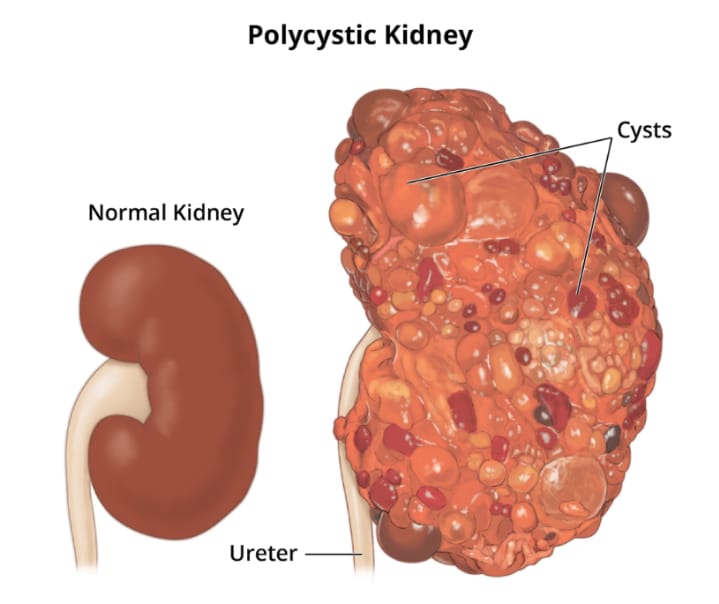Polycystic kidney disease (PKD) is a genetic disorder characterized by the growth of numerous cysts in the kidneys. These cysts are filled with fluid and can grow to be very large, causing the kidneys to enlarge and lose function over time. PKD can also cause cysts tsytmphiyo develop in other organs such as the liver and pancreas, and can lead to complications such as high blood pressure, kidney stones, and infections.

There are two main types of PKD: autosomal dominant PKD (ADPKD) and autosomal recessive PKD (ARPKD). ADPKD is the most common form, affecting about 1 in 500 people, and is caused by a mutation in one of two genes, PKD1 or PKD2. ARPKD is much rarer, affecting about 1 in 20,000 people, and is caused by mutations in a different gene, PKHD1.
Symptoms of PKD may not appear until later in life, and can include:
Pain in the back or sides
Blood in the urine
Frequent urination
Urinary tract infections
High blood pressure
Kidney stones
Abdominal bloating or pain
Enlarged kidneys .
Treatment for PKD focuses on managing symptoms and slowing the progression of the disease. Medications may be prescribed to control blood pressure and relieve pain. In some cases, surgery may be necessary to remove large cysts or to drain cysts that are causing pain or infection. Dialysis or kidney transplantation may be necessary in advanced cases where kidney function has been severely compromised. Genetic counseling may also be recommended for individuals with a family history of PKD.
Homoeopathic medicines – some medicines are very helpful to treat PKD such as Apis mel., Cantheris, Arsenic alb., Canabis indica, Ruta , Plumbum met., etc.
How to manage with treatment –
here are some tips to help you manage the condition :-
Stay hydrated: Drinking plenty of water can help flush out toxins and prevent kidney stones from forming.
Eat a healthy diet: A healthy diet can help manage PKD symptoms and prevent further kidney damage. Low salt and low protein diet.
Manage blood pressure: High blood pressure can damage the kidneys and worsen PKD symptoms.
Avoid heavy lifting and strenuous exercise: Physical activity can put strain on the kidneys, which can worsen PKD symptoms.
Manage stress: Stress can worsen PKD symptoms and lead to other health problems. Practice stress-reducing techniques such as meditation, yoga, or deep breathing exercises.
Monitor kidney function: Your doctor may recommend regular blood and urine tests to monitor kidney function and identify any changes or complications.

